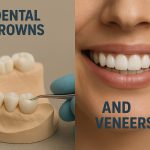In today’s fast-paced world, stress has become a constant companion. Whether it’s demanding work schedules, family responsibilities, or endless digital distractions, the pressure can accumulate and take a toll on both body and mind. 구로출장맛사지 While people often turn to coffee, social media, or quick naps for relief, these solutions only provide temporary comfort. The real game-changer lies in a timeless and natural method: massage therapy.
Massage therapy is not just about indulgence or luxury; it is a scientifically backed approach to managing daily stress. By addressing both physical and emotional tension, it acts as a natural weapon against the pressures of modern life.
How Stress Affects the Body and Mind
Stress triggers a cascade of physiological responses. The body releases cortisol, the “stress hormone,” which prepares muscles and the mind for a fight-or-flight reaction. While beneficial in emergencies, chronic stress keeps cortisol levels elevated, leading to:
- Muscle tension and soreness
- Headaches and migraines
- Fatigue and low energy
- Anxiety and irritability
- Difficulty concentrating
These physical and mental effects can compound over time, making it harder to function efficiently and maintain overall well-being. Massage therapy directly targets these stress-induced problems, promoting relaxation and balance.
The Science Behind Massage and Stress Relief
Scientific studies have shown that massage therapy can significantly reduce stress levels. During a session, physical touch stimulates the parasympathetic nervous system, responsible for the “rest and digest” state. This shift reduces heart rate, lowers blood pressure, and decreases cortisol levels, while simultaneously increasing serotonin and dopamine — neurotransmitters that enhance mood and relaxation.
In essence, massage helps the body reset itself, counteracting the negative effects of chronic stress. This is why even a single session can leave you feeling rejuvenated, refreshed, and mentally clear.
Physical Relaxation and Muscle Release
One of the most immediate benefits of massage therapy is the relief of physical tension. Stress often manifests in tight shoulders, a stiff neck, or a sore back. Massage works by loosening these muscles, improving circulation, and promoting flexibility.
By addressing physical discomfort, massage allows the body to operate more efficiently, reducing the strain that contributes to mental stress. This interplay between physical and mental relaxation creates a holistic sense of calm that supports overall well-being.
Emotional and Mental Benefits
Stress isn’t only physical — it also affects emotions and mental clarity. Muscle tightness often mirrors internal tension, and releasing this through massage can bring profound emotional relief.
A massage session provides:
- A sense of calm and peace
- Relief from anxiety and irritability
- Improved mood and emotional resilience
By addressing both body and mind, massage therapy allows individuals to approach daily challenges with greater patience, positivity, and focus.
Types of Massage That Combat Daily Stress
Different massage techniques offer unique benefits for stress relief:
- Swedish Massage: Gentle, flowing strokes that promote relaxation and reduce muscle tension
- Deep Tissue Massage: Targets deeper layers of muscle to relieve chronic stress-induced tightness
- Aromatherapy Massage: Combines massage with essential oils to enhance relaxation and emotional balance
- Shiatsu Massage: Uses acupressure points to relieve stress and harmonize energy flow
- Hot Stone Massage: Incorporates heat to loosen muscles and deepen relaxation
Choosing the right technique can amplify the stress-relieving benefits, providing a tailored approach that meets individual needs.
How Massage Enhances Sleep Quality
Stress often interferes with sleep, creating a cycle of fatigue and tension. Massage therapy promotes deep relaxation, making it easier to fall asleep and enjoy uninterrupted rest.
Better sleep leads to:
- Increased energy levels
- Enhanced focus and productivity
- Improved mood regulation
- Reduced susceptibility to illness
Integrating regular massage sessions into your routine ensures that stress does not interfere with your nightly recovery, supporting both body and mind for the days ahead.
Boosting Mental Clarity and Focus
Stress clouds judgment and reduces mental clarity. Massage therapy helps reset the mind by lowering stress hormone levels and improving blood flow to the brain.
As a result, individuals experience:
- Enhanced concentration
- Clearer decision-making
- Improved problem-solving abilities
- Heightened creativity
This mental reset is invaluable in a world that demands constant attention and efficiency. A relaxed mind is better equipped to navigate complex tasks, communicate effectively, and manage responsibilities with ease.
Massage as a Preventive Strategy
Rather than waiting for stress to overwhelm the body, massage therapy serves as a preventive measure. 가산동 출장 Regular sessions maintain muscle flexibility, reduce tension buildup, and regulate nervous system activity.
Preventive benefits include:
- Reduced risk of chronic pain and injury
- Lowered long-term stress levels
- Enhanced immune system function
- Sustained emotional balance
By incorporating massage into a weekly or bi-weekly routine, individuals can manage stress proactively rather than reactively.
Creating a Relaxing Environment
The benefits of massage are amplified by the environment in which it takes place. A calming atmosphere helps the body and mind fully embrace the relaxation process.
Key elements include:
- Soft lighting and comfortable surroundings
- Gentle, soothing music
- Aromatherapy or natural scents
- Minimal distractions
By creating a sanctuary for massage, even brief sessions can provide profound stress relief, leaving a lasting impact on both body and mind.
Self-Care Beyond the Table
While professional massage sessions are powerful, self-care practices can extend the benefits throughout the day. Techniques such as self-massage, stretching, mindful breathing, and meditation complement professional sessions and maintain relaxation between appointments.
Integrating these practices into daily life ensures that stress does not accumulate, creating a continuous cycle of relaxation and mental clarity.
Emotional Resilience Through Regular Massage
Stress often affects emotional stability, leading to irritability, impatience, and frustration. Regular massage fosters emotional resilience by:
- Reducing the physiological impact of stress
- Enhancing mood and positive feelings
- Encouraging mindfulness and presence
This emotional balance allows individuals to respond to challenges calmly, maintaining composure even in high-pressure situations.
How Massage Boosts Overall Energy
Paradoxically, relaxation through massage can lead to increased energy. By releasing muscle tension, improving circulation, and promoting restful sleep, the body operates more efficiently.
Individuals often feel more alert, motivated, and ready to tackle tasks after a massage session. This sustained energy helps manage daily stressors without resorting to artificial stimulants like caffeine or sugar.
The Therapist’s Role in Stress Management
A skilled therapist is central to achieving the full stress-relieving benefits of massage therapy. They can identify areas of tension, understand individual stress patterns, and employ techniques tailored to the client’s needs.
Through professional touch, therapists:
- Release deep-seated physical and emotional tension
- Guide the nervous system into a state of calm
- Support long-term mental and physical resilience
Their expertise transforms massage from a simple indulgence into a strategic tool for stress management.
Integrating Massage into Your Lifestyle
To maximize its impact, massage should be viewed as an essential part of a wellness routine rather than an occasional luxury. Even a single session per week can significantly reduce stress levels and improve quality of life.
Integrating massage with other healthy habits, such as exercise, proper nutrition, hydration, and mindful practices, creates a holistic approach to stress management. Over time, these practices reinforce one another, making stress easier to handle and emotional balance easier to maintain.
Conclusion: Harness the Natural Power of Massage
Massage therapy is more than relaxation; it is a natural, effective weapon against daily stress. By releasing physical tension, calming the nervous system, and promoting emotional balance, massage transforms the way we experience life’s pressures.
Incorporating massage into your routine enhances sleep, increases mental clarity, boosts energy, and fosters emotional resilience. It empowers individuals to manage stress proactively, turning daily challenges into opportunities for calm and focus.
With its unique ability to address the body, mind, and emotions simultaneously, massage therapy stands out as a holistic approach to stress management. Make it a part of your lifestyle and experience the difference — a calmer, more focused, and energized you awaits.





